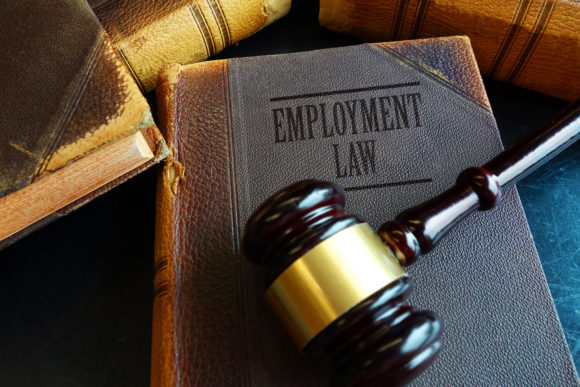
President Donald Trump recently ordered federal agencies not to enforce laws that prohibit policies and practices with discriminatory impacts that are often unintended. Curbing so-called “disparate impact” liability, which is common in employment-related cases, removes a critical tool the government has used for decades to also police discrimination in housing, education, lending and other areas.
WHAT IS DISPARATE IMPACT LIABILITY?
Numerous federal laws, some dating to the years after the Civil War, prohibit discrimination based on race, sex, religion and other protected traits. Courts long understood discrimination to be an intentional act, but that began to change after the adoption of the landmark Civil Rights Act in 1964.
The U.S. Supreme Court created a new path to hold employers liable for discrimination in the 1971 case Griggs v. Duke Power. The court said that otherwise neutral employment practices can violate the Civil Rights Act when they disproportionately affect a protected group and are not demonstrably related to job performance.
Congress in 1991 amended the Civil Rights Act to explicitly prohibit the practices covered by the Supreme Court decision. Many experts have credited those changes for helping to spur companies to track the impact of their employment policies on protected groups, a now commonplace practice.
WHY DOES TRUMP OPPOSE DISPARATE IMPACT LIABILITY?
Trump in an April 23 executive order said disparate impact litigation is one of the tools used by a “pernicious movement” to replace merit-based decision making with a focus on diversity.
The Republican president has been a vocal critic of workplace diversity, equity and inclusion policies and has launched an aggressive effort to eradicate them from the government and the private sector.
During Trump’s first term, some federal agencies considered rolling back disparate impact regulations. The U.S. Department of Housing and Urban Development in 2020 eliminated Obama-era rules barring housing practices with disparate impacts on protected groups, but that was paused by a court and later reversed by the Biden administration.
Trump in April’s executive order said the threat of disparate impact litigation prevents businesses from making decisions based on merit and skill, and that the legal theory wrongly presumes that unlawful discrimination exists “where there are any differences in outcomes” among different groups.
WHAT DO LEGAL ADVOCATES SAY?
Legal advocates point out that plaintiffs using disparate impact analysis are generally required to show statistically significant differences that cannot be explained by legitimate, non-discriminatory factors in order to win disparate impact lawsuits.
Many legal experts and civil rights advocates say disparate impact liability is a crucial tool for uncovering systemic discrimination that may be unintentional but affects workers and communities. They say it holds employers and others accountable when they fail to change their practices and that the latest order risks exacerbating disparities.
WHAT ARE EXAMPLES OF DISPARATE IMPACT?
Even the most routine policies can have disparate impacts on specific groups. Many companies stopped administering physical fitness tests or changed eligibility requirements for jobs after a surge in lawsuits during the Obama administration claiming such policies discriminated against women and older or disabled workers.
Other employers have been sued for refusing to hire people with criminal records, which can have a disparate impact on Black and Hispanic job applicants. Advocates argue that Black and Hispanic people are disproportionately convicted of crimes due to inequities in the criminal justice system.
A policy with a disparate impact can be legal when it is necessary to operate a business. For example, law firms can require applicants for jobs as lawyers to have law degrees and banks can deny loans to people with low credit scores even if those policies disproportionately exclude members of certain groups.
WHAT DOES TRUMP’S ORDER DO?
Trump declared a government-wide policy “to eliminate the use of disparate-impact liability in all contexts to the maximum degree possible” and directed federal agencies to deprioritize enforcement of disparate impact laws.
Trump told the heads of federal agencies, including the Attorney General, the chairs of the Equal Employment Opportunity and Federal Trade commissions, the Secretary of Housing and Urban Development, and the Director of the Consumer Financial Protection Bureau, not to pursue cases attempting to hold businesses and others liable for disparate impact discrimination.
Trump also told federal agencies to evaluate whether existing cases and settlements that rely on disparate impact claims comport with his order. That means some employers, schools, banks and others could be released from settlements they entered into years ago, including requirements to adopt anti-discrimination policies and submit to outside monitoring.
WHAT HAPPENS NEXT?
Trump’s order will likely lead the agencies to drop some existing cases and settlements, and deter them from bringing any lawsuits or brokering settlements involving disparate impact claims.
Trump’s order may face legal challenges by groups and individuals who have filed discrimination complaints with federal agencies, likely claiming that Trump exceeded his authority by issuing it. Many of the more than 140 executive orders issued by Trump since January have been challenged in court by nonprofits, unions, workers and Democratic state officials, among others.
The most important insurance news,in your inbox every business day.
Get the insurance industry’s trusted newsletter
#Trump #Enforcement #Civil #Rights #Laws #Ban #Disparate #Impact